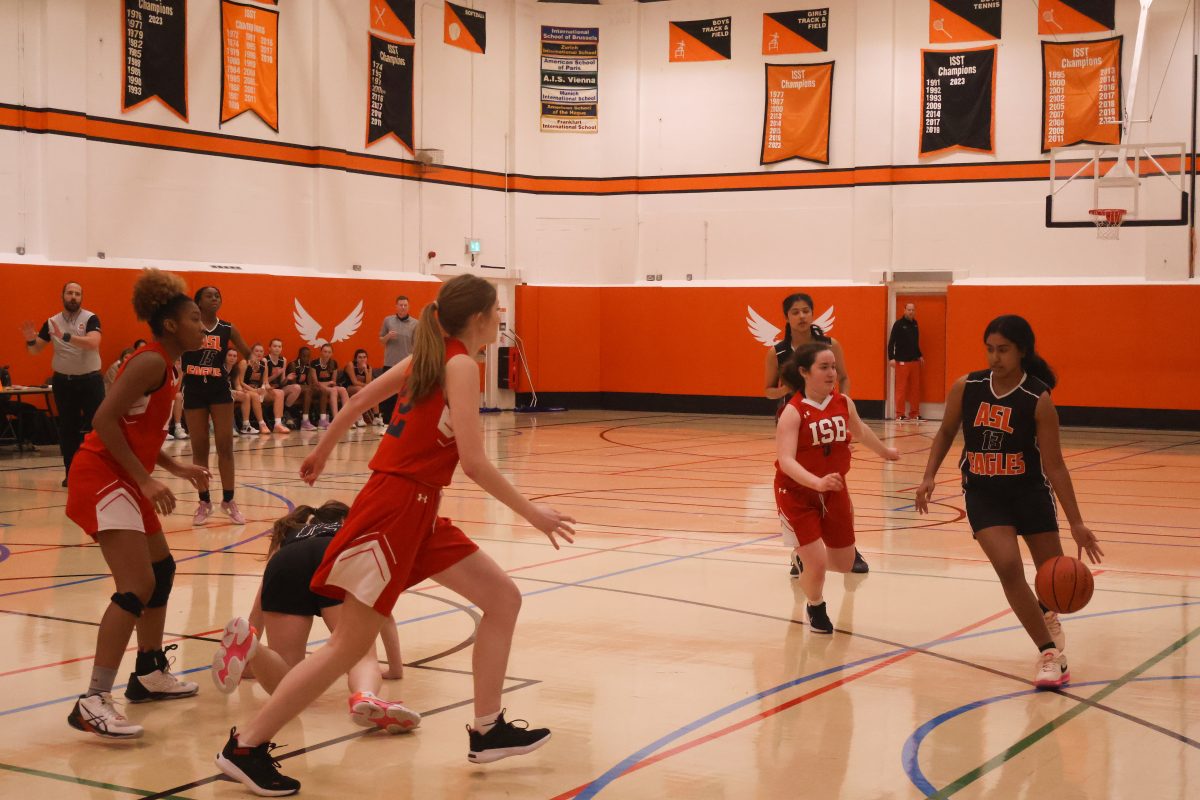Brodie Craig (’18) vividly remembers his last ever American football game in high school. “We were playing under the lights on a turf field at one of the local preparatory schools. We didn’t win the game, but our whole school came out to watch and it was an amazing football environment and an experience I will definitely never forget.”
The repeat of a momentous event is no longer possible for Craig, as his recent move to London has severely limited his ability to play American football.
Craig, like many students, would like to pursue sports he primarily played in the U.S. throughout high school.
When coming to ASL, he was forced to give up the enjoyment he used to get from playing football and ice hockey. Part of his struggle comes from not having many students to talk to about ice hockey, as many other students do not have a big interest in the sport. He struggles most with it being absent from his life.
Despite these sports being absent from Craig’s life, many other students still characterize him by his prior sports. “A lot of kids make jokes about me in basketball and soccer about how I played like an ice hockey or football player. I’d be really physical, especially in soccer,” he said.
Although Craig continues to follow American football and ice hockey teams, he has had to adjust to not being able to play the sport himself. This was one of the reasons he was initially against moving to London, as he knew not playing would be a difficult adjustment. It was hard for him to imagine himself not playing his favorite sports in high school, as it was an integral part of his social life.
“When my parents said we were moving here, that was one of the reasons I was against it. I knew it was going to be hard for me and I wasn’t too happy about that,” he said.
Since ASL does not offer either sport, he alternatively plays soccer and basketball to fill up the time which was previously devoted to American football and ice hockey.Though students would enjoy being able to continue their prior sports, adding new sports can be a laborious task for the Athletic Department.
Director of Student Life James Perry thinks there are critical aspects when deciding which sports to offer. “In general my experience at schools has been that you need to look at demand, so what do kids want to play. You need to look at supply of coaches, who do you have, whether it’s faculty or staff, who can coach and instruct in that sport. Then there’s also a supply of available teams to play the sport. And fourth, of course, is resources, which includes facilities,” Perry said.
Assistant Athletic Director Heidi McCune thinks that it is important to offer the sports which are included at ISSTs other European schools, in addition to sports included at LSSAs other schools in London. ASL and Cobham are the only schools which offer a team in every single sport for both competitions.
Although it can be difficult for the Athletics Department to find unoccupied and accommodating facilities, they would like to consider all the students’ suggestions. “As an Athletic Department, we want to get every single kid in the school involved in a sport. If people come to us and say ‘I want to play this’ we will see if we could make it happen,” McCune said.
McCune believes it is always great to start a new sports team, but there also need to be students who are not already playing a sport. If students who are already involved in sports are exposed to more offerings, the school is wrecking one sport for the other. The Athletic Department will also see if they can rely on local competition if it is worthwhile for the school to initiate a new sport.
Perry echoed McCune’s belief, as he admits that offering too many sports in one season may weaken the sports already offered. “There’s a point where you have too many offerings and you dilute the quantity and quality of the players on a team. There’s a perfect example where if soccer were a spring sport here, think about the havoc that would wreak other sports – it’s tough. I’m sure we would adapt to it and we would be okay, but quantity affects quality,” he said.
Jack Neblett (’16) feels that adding American football would “probably divide the rugby team because then you may have half the team going into American football and half staying with rugby, so both programs wouldn’t be very good.” Even though some students may prefer American football to rugby, others would not and therefore both would not end up having full teams.
For some students, adapting has not been as difficult, and unlike Craig, Neblett managed to acclimate with more ease. Although it would have been preferable to him if ASL offered American football, he was able to use his prior skills and physicality to join the rugby team – a comparable sport. Other international schools do not offer this type of contact sport, which is one reason that he decided to come to ASL.
Jack Mullally (’16) was also able to adjust quickly after moving, as his father was able to find an ice hockey club for him. Although his club is far away, located at Alexandra Palace, he considers moving from the U.S. an advantage, as his teammates are mostly from England and are not as familiar with the sport. “In some ways it changes how good the team is as a whole, because I’ve been to professional hockey games and I’ve watched and grew up watching those teams, but people here haven’t nearly as much. They know how the game works but haven’t really seen it played,” he said.
Craig considers rugby as a future possibility, but leans toward continuing soccer. While Craig has found a suitable hockey team, he remains tentative on starting and admits he has not had a trial yet due to various constraints.
Whereas Craig remains adamant on preserving his childhood sports, Neblett believes he has exceeded the point of return for American football and no longer yearns to play a sport he grew so accustomed to during his time in the U.S.







